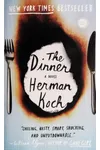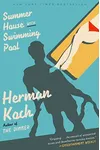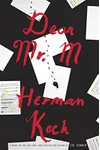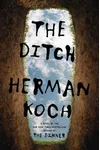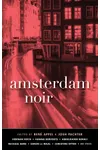Picture a Dutch storyteller who serves up biting social commentary with a side of dark humor—meet Herman Koch! Best known for his international bestseller The Dinner, Koch has captivated readers worldwide with his sharp, provocative novels that peel back the veneer of polite society. But before he was a literary sensation, he was a comedic force on Dutch television, co-creating the absurdist sketch show Jiskefet. With his works translated into 21 languages and adapted for stage and screen, Koch’s unique blend of wit and unease has made him a standout voice in contemporary literature.
Born in 1953, Koch’s journey from a rebellious Amsterdam teen to a celebrated author is as intriguing as his stories. His ability to weave humor, satire, and moral dilemmas into gripping narratives has earned him a devoted global following. Ready to dive into his world? Let’s explore the life and legacy of this multifaceted artist!
The Making of Herman Koch
Herman Koch was born on September 5, 1953, in Arnhem, Netherlands, but his family moved to Amsterdam when he was two. Growing up in the vibrant capital, Koch attended the Montessori Lyceum, only to be expelled for misbehavior—a hint of the irreverent streak that would define his career. Initially drawn to comedy, he found his footing in the 1980s with the radio show Borát, where he crafted quirky sketches. This led to his big break in 1990 when he co-created Jiskefet, a wildly popular TV series that ran for 15 years, showcasing his knack for absurd humor and social satire.
Koch’s writing career began quietly with short stories in the 1980s, followed by his debut novel, Save Us, Maria Montanelli, in 1989. While his early works flew under the radar, they laid the groundwork for his later success, blending sharp observations of human nature with a darkly comedic edge. His dual talents as an actor and writer set the stage for his literary breakthrough.
Herman Koch’s Unforgettable Stories
Koch’s novels are like a perfectly plated dish: deceptively simple, yet packed with complex flavors. His breakout hit, The Dinner (2009), is a masterclass in suspense, unfolding over a single meal as two couples grapple with their sons’ horrific crime. Translated into 21 languages and adapted into multiple films, it won the prestigious Publieksprijs Prize and cemented Koch’s reputation for tackling uncomfortable moral questions with biting wit.
Other notable works include Summer House with Swimming Pool (2011), a dark tale of a doctor entangled in a patient’s death, and The Ditch (2019), which follows an insecure Amsterdam mayor unraveling amid personal suspicions. Koch’s style is unmistakable: he uses unreliable narrators and taut pacing to expose the flaws of privileged society, often leaving readers questioning their own values. His 2017 Boekenweekgeschenk, a short story for the Dutch Book Week, further showcased his versatility, proving he could pack a punch in any format.
Whether he’s skewering family dynamics or political ambition, Koch’s stories resonate for their universal themes and unflinching honesty. His background in comedy infuses his prose with a playful edge, making even the darkest moments oddly entertaining.
Why Herman Koch Matters
Herman Koch’s impact lies in his fearless exploration of human nature’s darker corners. His novels don’t just entertain—they provoke, forcing readers to confront uncomfortable truths about morality, privilege, and family loyalty. The Dinner alone sparked global debates, drawing comparisons to works like We Need to Talk About Kevin for its raw take on parenting and evil. Koch’s ability to blend satire with psychological depth has made him a literary trailblazer, particularly in Dutch literature, where he’s elevated the psychological thriller to new heights.
His influence extends beyond bookshelves. Through Jiskefet, Koch shaped Dutch comedy, and his novels’ film adaptations have brought his stories to new audiences. As a columnist for outlets like Volkskrant, he’s also left a mark on cultural discourse, always with a sharp, outsider’s perspective.
About Herman Koch
- Born: September 5, 1953, in Arnhem, Netherlands
- Key Works: The Dinner, Summer House with Swimming Pool, The Ditch
- Awards: Publieksprijs Prize (2009) for The Dinner
- Fun Fact: Co-created the iconic Dutch TV show Jiskefet, beloved for its absurdist humor
Snag The Dinner and dive into Herman Koch’s wickedly clever world of satire and suspense—you won’t look at family dinners the same way again!
